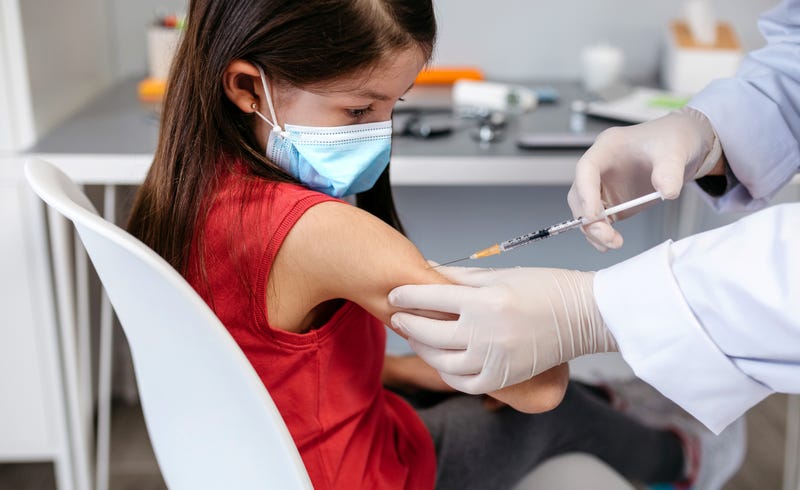
Even though the U.S. Food and Drug Administration has granted full approval to Pfizer-BioNTech's two-dose COVID-19 vaccine, pediatricians are warning doctors to pump the brakes when it comes to vaccinating children under 12.
The FDA on Monday approved the Pfizer shot for anyone age 16 and older, and those age 12 to 15 can get it under emergency use authorization. However, pediatricians say parents should remember that no COVID vaccines have been authorized or approved for use in children under 12. The simple reason is that the vaccines have not undergone testing to prove that they are safe and effective for this group.
The FDA is warning against using the vaccine "off-label" in children under 12, saying it "would not be appropriate." Off-label use is simply unapproved use of an approved drug.
Sometimes, healthcare providers decide to use an approved drug for an unapproved use to treat a disease or medical condition even though the FDA has not determined the drug is safe and effective for that use -- for example, when a chemotherapy approved for one type of cancer is used to treat a different type.
And that's exactly what pediatricians are warning against when it comes to the Pfizer vaccine and the coronavirus.
"We don't have the data on young children. So that really ought to be a no-no," Dr. Jesse Goodman, an infectious disease expert at Georgetown University, told USA Today. "The science is not there to support dosing yet in small children."
Vaccine trials for children are ongoing but not yet complete. Even when the trials have wrapped up, the FDA has to analyze the data before approval can be granted. Studies in children ages five to 11 are expected to be finished by the fall, but it will take longer for trials in the youngest children to be complete.
"We need to see the data from those studies before we give this vaccine to younger children," Dr. Lee Savio Beers, president of the American Academy of Pediatrics, said in a statement. "The dose may be different for younger ages."
The dose currently being tested in the trials for children 12 and younger is much lower than a dose of the adult vaccine.
Dr. Yvonne Maldonado, chair of the AAP Committee on Infectious Diseases, is urging physicians to wait until the clinical trials are complete in children to give the vaccine to those under 12.
"We do not want individual physicians to be calculating doses and dosing schedules one-by-one for younger children based on the experience with the vaccine in older patients," Maldonado said in a statement. "I know parents are anxious to protect their children, but we want to make sure children have the full benefit of ongoing clinical trials."
In the meantime, health officials agree that increasing vaccination rates now among all who are eligible is important to protect kids while the trials in younger children are underway -- especially as the contagious delta variant continues to circulate across the nation.
"We know parents are eager to be able to give their children the protection of this vaccine," Beers said. "While we wait for a vaccine to be authorized for younger children, it’s important that everyone who is eligible now get the vaccine. That will help reduce the spread of the virus and protect those who are too young to be vaccinated."
As of August 18, 11.2 million U.S. children under age 18 have received at least one dose of the COVID vaccine. About 43% of 16-17 year-olds and 33% of 12-15 year-olds are fully vaccinated, along with 62% of adults, according to the latest data from the Centers for Disease Control and Prevention.
Children under age 12, who are not yet eligible for the COVID vaccine, represent 14.5% of the U.S. population.



